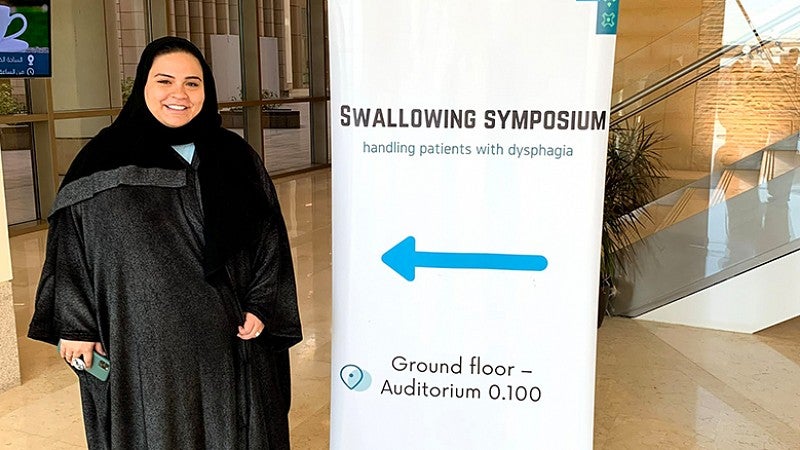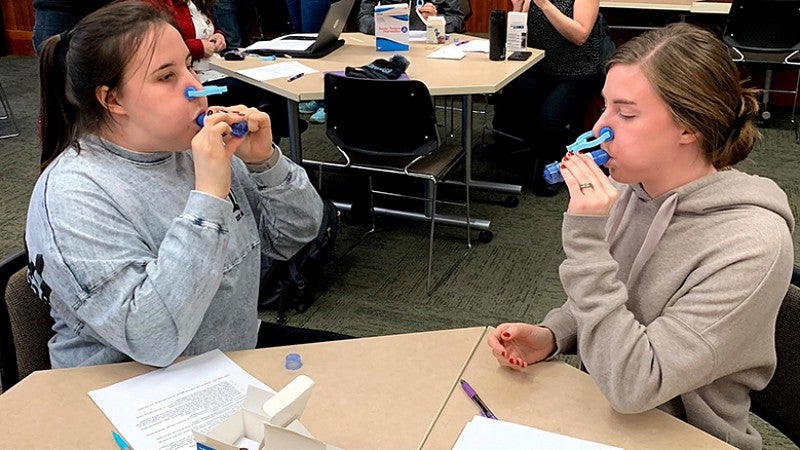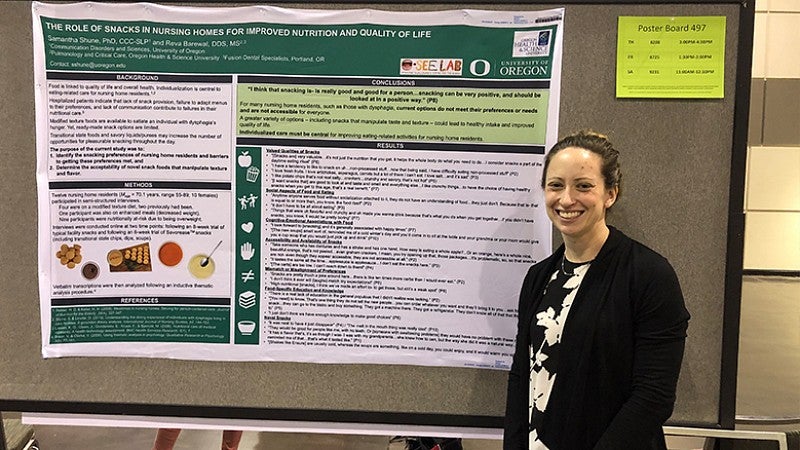Program Options | Our Mission | Take a Video Tour | Accreditation



Why earn a degree in Communication Disorders and Sciences?
If you’re passionate about helping others and recognize the key role effective communication plays in academic, social, and vocational success, our Communication Disorders and Sciences program may be the path for you. We prepare the next generation of speech-language pathologists through our bachelor, master’s, and doctoral degrees. Students work in both educational and clinical settings to learn and understand how to work successfully with individuals of all ages who are challenged by disorders in communication, cognition, and swallowing.
Our Communication Disorders and Sciences (CDS) program prepares you to understand, assess, and treat individuals who are experiencing challenges in:
- Speech
- Language
- Literacy
- Communication
- Cognition
- Swallowing
You will learn to address these challenges across diverse ethnic, cultural, linguistic, social and economic backgrounds. We emphasize the ability to apply empirical evidence, logic, and a scientific perspective to the process of enhancing communication skills in meaningful and ecologically valid contexts.
We know effective communication plays a key role in the achievement of academic, social, and vocational success. And, in turn, in the development of productive and contributing citizens.
The goals of the Communication Disorders and Sciences (CDS) program are based on the belief that the ability to communicate effectively is a fundamental right of all human beings. When this right is compromised through circumstances affecting any child, adolescent, or adult, society suffers along with the individual.
Program Options
The Communication Disorders and Sciences program offers the following degree options:
What can I do with a degree in Communication Disorders and Sciences?
Students pursuing the undergraduate degree in communication disorders and sciences are typically interested in pursuing graduate work in speech pathology or audiology.
Some students pursue a graduate degree in areas like special education and early intervention/early childhood special education, or work as a speech pathology assistant or in an allied field.
Graduates of the master's program become accredited speech language pathologists and most work directly with children, adolescents, or adults with a variety of speech, language, communication, cognition, and swallowing disorders in settings that include:
- Schools
- Clinics
- Hospitals
- Agencies
Most of our doctoral program graduates assume professor positions at colleges and universities where their responsibilities include teaching, research, and other scholarly activities.
Our Mission
The mission of the University of Oregon's Communication Disorders and Sciences program is to prepare students to understand, assess, and treat individuals across diverse ethnic, cultural, linguistic, social and economic backgrounds experiencing challenges in speech, language, literacy, communication, cognition, and swallowing.
The program is dedicated to achieving excellence in student preparation via the integration of clinical and classroom education, the generation and application of research, and the provision of community outreach. Our vision is to train leaders in the field in an environment that encourages inclusion, critical thinking, freedom of inquiry, and social justice.
Take a Video Tour
Take a virtual tour to learn more about our degree program.
Accreditation
The Master of Science (MS) education program in speech-language pathology (residential) at the University of Oregon is accredited by the Council on Academic Accreditation in Audiology and Speech-Language Pathology of the American Speech-Language-Hearing Association, 2200 Research Boulevard, #310, Rockville, MD 20850, 800-498-2071 or 301-296-5700.

